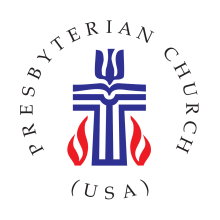 What We Believe
What We Believe
We believe that the life of discipleship begins when we accept Jesus Christ as our personal Lord and Savior. For some, this is a gradual process; for others, it is a decision reached in a moment of time. We believe that the living God reaches out to us, and invites us to respond in faith and obedience.
We believe that the Bible is the unique and authoritative Word of God, that it is God’s word to us in matters of life, faith and doctrine.
We are a “reformed” church meaning that we believe that the Holy Spirit is constantly “reforming” or renewing and transforming the church. We give thanks for our tradition, but are open to the fresh winds of the Spirit.
We recognize two sacraments, baptism and the Lord’s Supper. We practice both infant and adult baptism. Infant baptism demonstrates the sheer grace of God, that God is at work in our lives, even before we are aware of his presence. Adult baptism shows the necessary response of faith and trust in Jesus Christ, required of all disciples. Infant baptism should be followed by confirmation, by a period of study during which youth decide for themselves if they will follow Jesus Christ as their Lord and Savior.
The Lord’s Supper, also known as communion or the Eucharist, recalls Jesus’ last supper with His disciples, challenges us to become an inclusive community, and reminds us of Jesus’ daily, indwelling presence with us. Any follower of Jesus Christ is welcome to receive communion.
We believe that all Christians are called to ministry. The role of the clergy is to teach; the role of the laity or members is to serve.
We have a representative church government. In fact, the U.S. government was modeled on the Presbyterian system. We are not hierarchical, ruled from above, or congregational, completely independent. We join with other Presbyterian churches in mission and ministry, but have the freedom to establish our local program and ministry.
We believe that God is Lord of the conscience. So while we are Christ-centered and biblically based, having clear theological beliefs, we are free to dialogue and even disagree. Each of us is to seek the guidance of the Holy Spirit.
